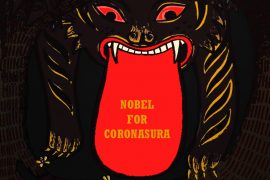It has become increasingly clear that prevailing academic incentive structures have a potentially damaging and distorting effect on the nature of academic debates. Portia Roelofs and Max Gallien use the example of a controversial recent journal publication to illustrate how deliberately provocative articles have the capacity to hack academia, to privilege clicks and attention over rigour in research. This is consistent with equally troubling trends in the wider news media; where equal prominence is seemingly always afforded to extreme opposing views, where actual progress in debates becomes impossible, and false dissent is created on issues which are overwhelmingly sites of academic consensus.
Last week, development studies journal Third World Quarterly published an article that, by many common metrics used in academia today, will be the most successful in its 38-year history. The paper has, in a few days, already achieved a higher Altmetric Attention Score than any other TWQ paper. By the rules of modern academia, this is a triumph. The problem is, the paper is not.
The article, “The case for colonialism”, is a travesty, the academic equivalent of a Trump tweet, clickbait with footnotes. Its author, Bruce Gilley, a professor at the Department of Political Science at Portland State University, sets out to question the “orthodoxy” of the last 100 years that has given colonialism a bad name. He argues that western colonialism was “as a general rule, both objectively beneficial and subjectively legitimate”, and goes on to say that instead of taking a critical view of colonial and imperial history, we should be “recolonising some areas” and “creating new Western colonies from scratch”.
Copyright©Madras Courier, All Rights Reserved. You may share using our article tools. Please don't cut articles from madrascourier.com and redistribute by email, post to the web, mobile phone or social media.Please send in your feed back and comments to [email protected]











